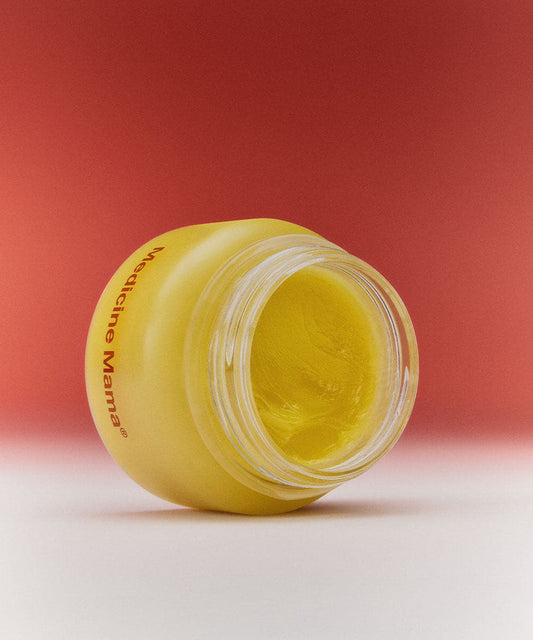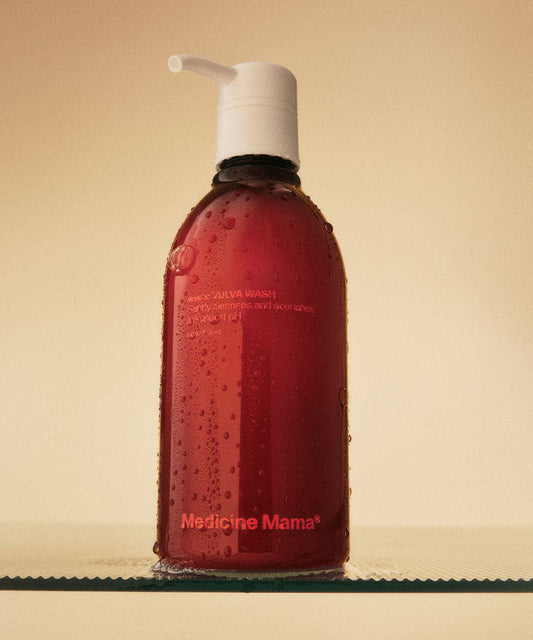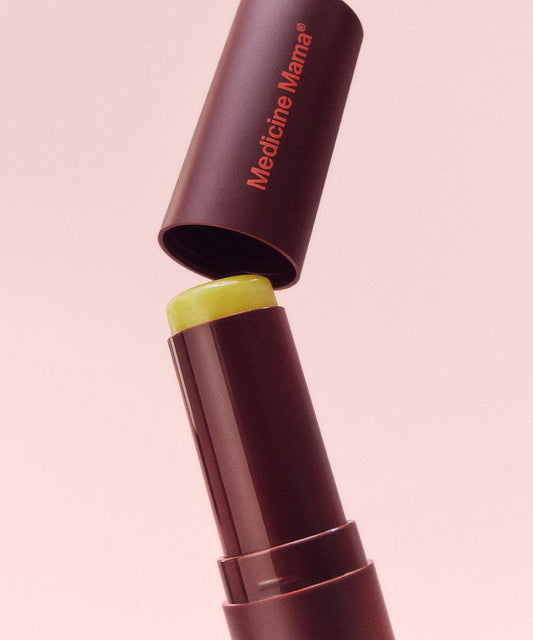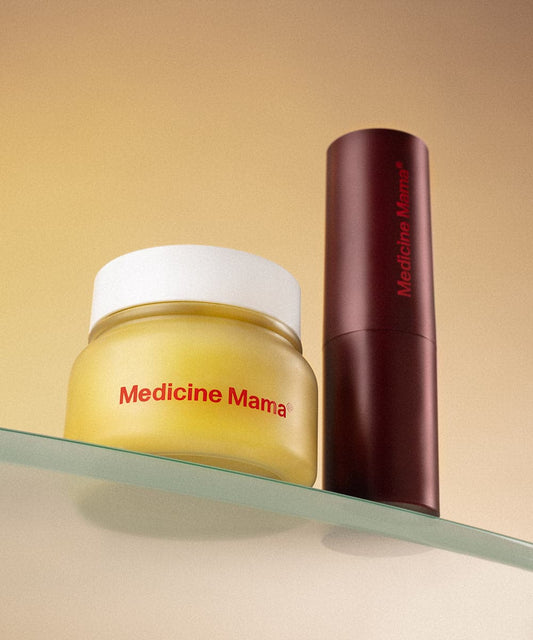
Reviewed by | Melinda (Melle) Hany, RN, ADN Registered Nurse
Let’s just say it: there’s a lot going on during menopause, and not all of it gets talked about, especially when it comes to changes in the way your vulva looks or feels. You might notice something different and immediately wonder, Was this always like that? or Is this normal?
We’re here to clear things up, answer what no one else is really explaining, and help you feel informed, supported, and a little more in tune with what’s actually happening down there.
What Is the Labia Minora?
The labia minora are the inner “lips” of the vulva — the delicate folds of skin that sit just inside the outer labia (the labia majora). They surround the vaginal opening and extend up toward the clitoris, playing a big role in both protection and sensation.
Unlike the labia majora, which tend to be thicker and have hair, the labia minora are thinner, hairless, and usually more exposed, making them more sensitive. This area is full of nerve endings and blood vessels, so it’s highly responsive to touch, arousal, and irritation.
Also worth noting: everyone’s labia minora look different. They can be short or long, symmetrical or not, tucked in or more visible. There’s no “normal” shape, size, or color — just what’s normal for you. “They can also change in size and shape, especially during major life changes, like puberty, pregnancy, or menopause,” says Melinda Hany, Registered Nurse.
How Exactly Does Menopause Affect the Labia Minora?
When estrogen starts to drop during menopause, the tissue in and around your vulva changes — and yes, that includes the labia minora. These inner folds rely on healthy blood flow, collagen, and natural moisture to stay soft, plump, and resilient. But, as hormones shift, that support system weakens.
The result? The labia minora may start to look or feel different. They can become thinner, drier, or more fragile. You might notice a change in color, texture, or even size, like they’ve shrunk a little or don’t feel as cushiony as they used to. Some women also feel more exposed because the tissue no longer folds or covers in quite the same way.
It’s not just about how things look, either. With less estrogen, the skin can become more sensitive or more easily irritated. Things like wiping, tight clothes, or even walking can start to feel different.
All of this is common, but that doesn’t mean you have to brush it off. Changes in the labia minora can be subtle or significant, and understanding what’s happening can help you figure out what kind of support your body needs next.
Which Changes Warrant a Trip to the Doctor?
Some changes are totally normal, but some are worth a closer look. If you’re noticing discomfort that doesn’t go away, pain during sex, rawness, or skin that looks unusually thin, pale, or shiny, it’s a good idea to check in with your provider.
Bleeding (outside of your period, if you’re still having one), open sores, or a burning sensation that won’t let up are also signs to get things looked at. These symptoms can be related to menopause, but they can also point to infections, skin conditions, or something else that needs treatment.
Bottom line: if something feels off or keeps nagging at you, don’t wait it out. You don’t need the “perfect reason” to make an appointment. You just need to feel like yourself again, and that’s more than enough.
How To Support Vaginal Health During Menopause
We’ve talked about the labia minora and how menopause can start to change things. So, now what? If your skin’s feeling different, your comfort’s off, or you’re just trying to figure out how to keep things working and feeling good, here’s where to start.
Moisturize Daily
Your labia minora aren’t just along for the ride. They’re made of delicate, dynamic tissue that needs real support, especially as estrogen levels shift.
Daily moisture can help restore that soft, cushioned feeling and keep irritation in check. It’s not just about sex, either. It’s about comfort when you’re walking, sitting, wiping, or just going about your day.
Our VMAGIC® Vulva Balm was made for this exact moment. It’s hormone-free, fragrance-free, and safe for daily use. A quick swipe is all it takes to keep your skin calm, comfortable, and supported.
Ditch the Fragrance (Seriously)
“Fresh” shouldn’t smell like a scented dryer sheet. Fragrance can be super irritating to vulvar skin, and it’s hiding everywhere: body sprays, wipes, bubble baths, even laundry detergent.
If things are feeling itchy, raw, or just off, it’s worth checking your products. Go for fragrance-free everything, not just “unscented,” which can still include masking agents that cause irritation.
Your skin knows the difference, and it will absolutely let you know. Keeping things simple doesn’t mean skipping care. It just means you’re giving your body what it actually wants.
Wear Breathable, Non-Irritating Fabrics
What you wear matters. Synthetic fabrics can trap heat and moisture, which isn’t ideal for sensitive skin that’s already more reactive. Tight pants, shapewear, and sweaty gym clothes can also create friction that leads to chafing or irritation.
Switch to cotton underwear (yes, the comfy kind) and give your skin room to breathe. Think: soft, simple, and nothing that digs. You don’t need to throw out your cute stuff, just make space for the kind of clothes that love your vulva back.
Use a Gentle Cleanser
Your vulva is not a dirty dish. It doesn’t need to be scrubbed, stripped, or attacked with five-step routines. In fact, the more gentle you are, the better.
Steer clear of foamy body washes, harsh soaps, and anything with a long list of mystery ingredients, especially sulfates, dyes, and fragrance. Those can throw off your pH and dry out the skin even more.
Stick with a gentle, fragrance-free feminine cleanser made specifically for the vulva, like our VMAGIC® Vulva Wash. It’s packed with nourishing, skin-friendly ingredients like calendula, chamomile, and organic olive oil that clean without being aggressive. It rinses off clean, doesn’t mess with your moisture barrier, and helps you feel fresh without creating new problems.
Prioritize Movement and Blood Flow
Here’s something that doesn’t get talked about enough: circulation matters. As estrogen dips, blood flow to the pelvic area naturally slows down, and that can affect everything from sensitivity to lubrication to tissue health. Movement helps bring that circulation back.
You don’t need to train for a marathon. Walking, stretching, dancing around your kitchen, or even doing a few hip circles before bed can get things flowing again.
The goal is to stay active in a way that feels doable, not punishing. Better blood flow means more oxygen, more nourishment, and a little extra support for the tissues that are doing their best through menopause.
The Wrap Up
Your labia minora might look or feel different during menopause, which doesn’t mean anything is wrong. It just means your body is changing. And it deserves care, not confusion. At Medicine Mama, we’re here to help you stay informed, feel good in your skin, and take the guesswork out of vulva care.
If you’re ready to support your body with clean, hormone-free essentials made for this stage of life (and the skin that comes with it), explore our collection. Because your comfort isn’t optional — it’s part of your wellness.
Sources:
Anatomy of the Vulva | University of Rochester Medical Center
Vaginal Atrophy: Causes, Symptoms, Diagnosis & Treatment | Cleveland Clinic



